
Laminate flooring is one of the most popular choices for homeowners. It comes in a wide assortment of designs and colors perfect for any room in the home. They are an affordable option to wood, stone and other kinds of natural flooring. Laminate tiles are easy to install. It’s a do-it-yourself job that you can tackle in the better part of a day.
Like most other kinds of flooring, laminate can show wear over time. It can get scratched, scuffed and take in water damage. Laminate tiles are easy to clean, but must be maintained regularly to extend their useful life. Regular cleaning can save you time in money in terms of replacement costs and repair.
You can find out more about laminate flooring online. You can visit websites, including Laminate Wood Flooring and other sites to learn about the different products that are available. You can compare prices and read product reviews. You can also review the selections that are available at your local home improvement or specialty retail stores near you.
Here are a few cleaning and maintenance tips for laminate flooring:
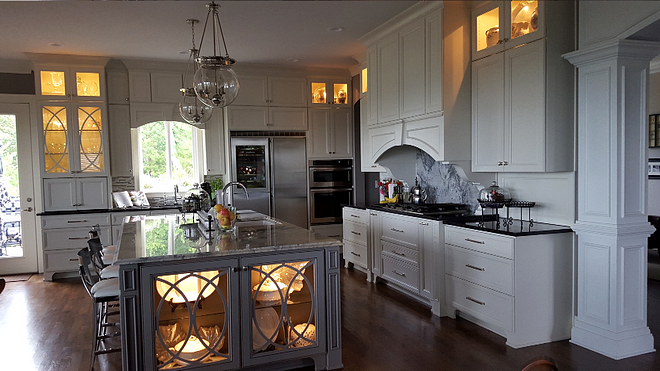
Make sure that any water or other liquid spills are cleaned up immediately. Standing water can be very harmful to laminate tiles. It can stain or damage the tile’s protective coating quickly. Wipe up any spills with a soft cloth or sponge. You can dampen the sponge or cloth you are using to help remove any excess moisture. Dry the area thoroughly with a clean cloth.

Sweeping your laminate floors at least once a week can help remove dust and dirt and prevent scratches from forming. Scratches in the tile’s protective layer can occur after excess dirt and debris are left to accumulate over a significant period of time. You can also use a vacuum with a soft brush attachment to clean your floors. Just make sure to not use a standard floor brush, as their straw-like bristles can be very coarse and could damage the tile. Sweep the floor in the same direction in which the laminate tiles were laid down. This helps avoid damage to the floor and lets you pick up any rocks, dirt or pet hair that can accumulate in the grooves between tile sections.
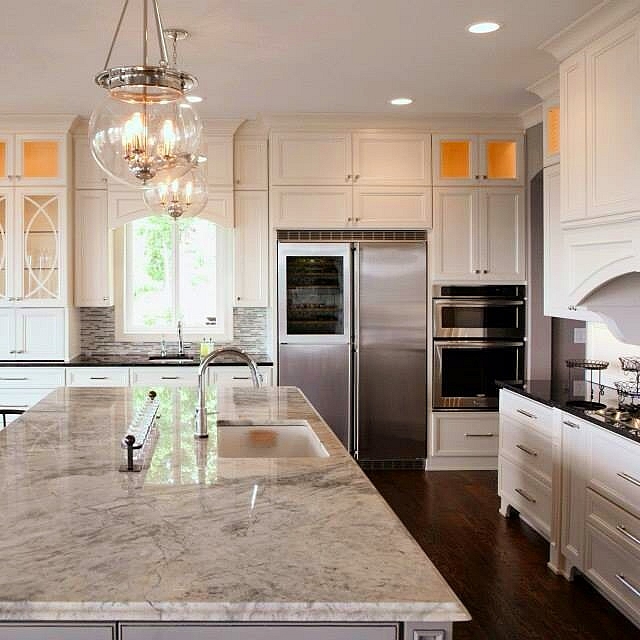
This is another effective method of keeping your tile floors clean. First, you’ll need to pour about 1/4 cup of water in a spray bottle that holds 30 ounces of liquid or more. Fill the bottle with water, and shake the mixture thoroughly to dilute the vinegar. This solution is handy for caked-on mud or other stains that have discolored the tile. Next, spray the solution on a small area of the tile at a time. You’ll need to wipe off each area almost immediately with a damp rag or cloth, to prevent the vinegar’s natural abrasiveness from eating away at the tile’s protective coating. Finally, dry the area completely with a dry cloth. This method is a bit more time-consuming than the previous two but is effective for a good overall cleaning of your laminate floors.
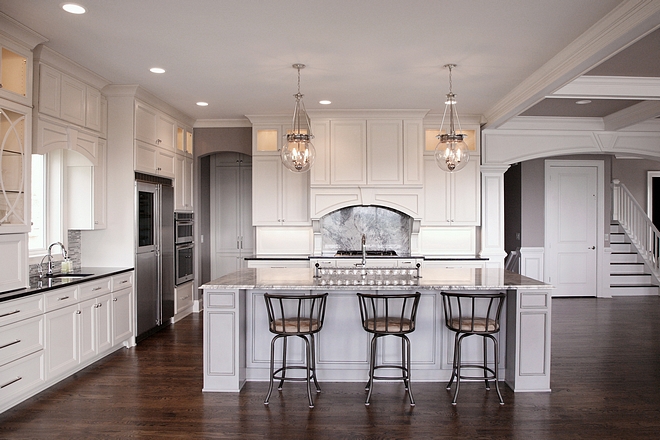
Cleaning your laminate floors every few months or so with warm water is a good way to get rid of dirt and mud. It won’t leave streaks on your floor and is a lot less likely to cause damage to the tiles. Just fill a bucket of hot water to get started. The water doesn’t have to be very hot, just slightly more than lukewarm will do just fine. Soak a sponge mop in the bucket of hot water and wring it out thoroughly afterwards. This is done to prevent any spills or standing water from forming while you’re cleaning. Use the mop to clean your floor from one end to the other. The mop should be just damp enough to use, but you may need to soak and wring it out again periodically during the process. If the floor is just barely damp afterwards, you can let it air dry. You can also dry the floor yourself using a soft, clean cloth. Don’t use a cloth that is abrasive, as it can scratch the tile’s protective outer coating. Also, make sure that any standing water is cleared off as soon as possible.
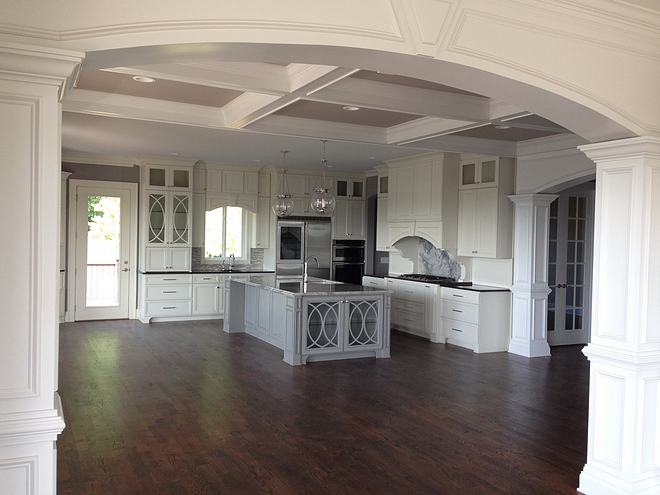
This is another good way to clean your tile floors. Start again with a bucket of water, and add a couple tablespoons of mild dish wash detergent or baby shampoo to the water. Just make sure not to use any detergents that have dyes or scents, as they can be abrasive to the tiles’ outer coating. Mix the soap into the water until bubbles start to form. From there, you can once again soak a sponge mop into the bucket and wring it out thoroughly. You can also use a good microfiber cloth as a substitute. Use the mop or cloth to carefully clean the floor all the way through. Feel free to re-wet and re-wiring the mop or cloth when necessary to get a good thorough cleaning of the entire floor. Once you’re done, you can either let the surface air dry if it’s just damp or dry it off with a soft rag or cloth. This helps remove excess water and soap streaks that you may find.
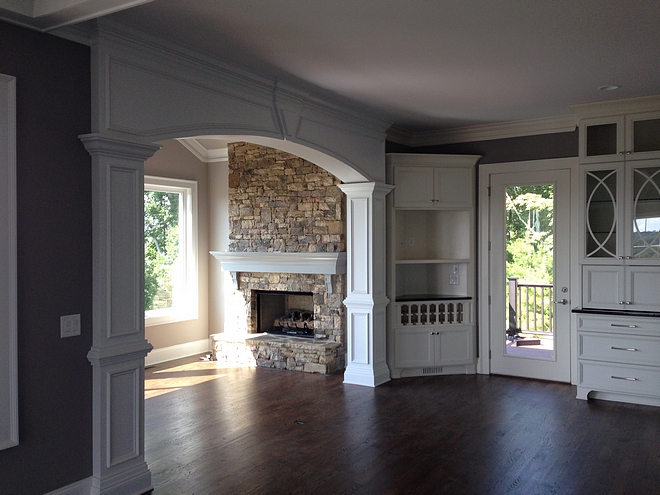
For best results, gently scrape off gum from your tile floor using a plastic knife. You shouldn’t need to apply a lot of pressure. A few simple swipes should do the job. Do not use a metal knife, as this can scratch your floor. Gently clean off the affected area with a soft, damp cloth or rag. You can rinse the rag or cloth that you are using with mineral spirits to better extract any gum residue that may have been left behind. Follow up by gently drying that area of the floor so as to eliminate any leftover water.
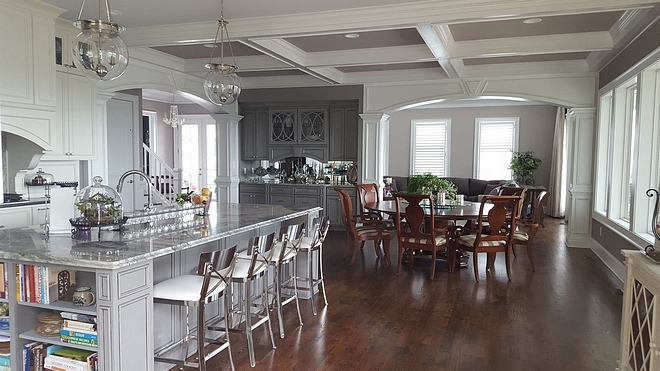
The sooner you attend to these kinds of stains, the easier they will be to remove. Just spray a small amount of window cleaner to the stain, and wipe it off with a warm, damp cloth or rag. Use a non-abrasive cloth or rag, so as not to risk scratching or marring the tile’s surface. You can also spray the cloth or rag with mineral spirits for a more effective clean. Wipe the affected area with a soft, damp cloth and dry it with a microfiber cloth when finished.
For heel marks and scuffs, you can use an ordinary eraser to remove them. Just make sure not to rub the area too vigorously, as that can damage the protective outer layer of the tile. A little gentle effort should get the job done. You may want to rinse the area with a damp, clean soft cloth and rinse it off immediately afterwards.
A good acetone nail polish remover should eliminate those and similar problem stains almost immediately. Just spray a little bit of nail polish remover to a clean microfiber cloth and gently scrub the affected area of your floor until the stain lifts up. Soak a soft cloth or rag in warm water, and gently wipe that area. You can let the floor air dry if it’s just barely damp or clean it off with a dry rag or cloth afterwards. Make sure that no standing water is left on the tile surface.
Use a nice cold ice pack or package of frozen vegetables to remove grease stains from your laminate flooring. Simply apply the ice pack or vegetable package to the affected area until the grease hardens. You can then carefully scrape the grease away with a plastic knife. Never use a metal knife, as that can damage the tile’s outer coating. If there’s any grease residue left over, you can spray what’s left with a small bit of window cleaner. Wipe off the remaining grease residue with a soft, damp cloth and dry the area immediately afterwards.
A damp microfiber cloth is an easy solution for removing soda, wine, crayon and ink stains on your tile floor. For stubborn, waxy crayon marks, you may need to add a little bit of mineral spirits. For ink stains that are a little more resistant, you can add a bit of ink remover or soft detergent to the cloth to remove the stain completely. Just make sure to rinse the area with a soft cloth that has been soaked in clean warm water and dry the area off afterwards.
Vacuuming is a key method for removing for most of the dirt, pet dander and grime that can appear on your tile floor. You should vacuum your tile floors at least once or twice a week. Vacuum in the same direction that the tiles are laid in. This will help you get rid of anything that can accumulate in the spaces between interlocking tiles. Follow up by cleaning with a soft-bristled broom or gentle hand broom to remove any dirt or particles that your vacuum doesn’t catch, especially in the corners or tight areas of the room.
Damp mopping is just fine for cleaning your laminate floors. Just make sure to remove any excess water. Too much water can damage your floors if left to accumulate, and excess water can seep into cabinets, vents, and baseboards. When mopping, it’s recommended to use two buckets of water while cleaning: one bucket for clean water, and one bucket for dirty water. Do not use a dirty mop head to clean your floors, as this can cause streaking on your laminate tile. You should also take the time to properly dry your floors if they are more than just damp.
There are several different kinds of natural cleaning products that you can use to clean laminate floors. Before you buy, take a minute or two to examine the contents of each product that you are considering. Stay away from cleaning solutions that contain bleach, wax or acrylics, because they can damage the floor’s finish and weaken the tile’s protective layer. Other products to avoid include steel wool, scouring powder or any kind of soap. Soaps can leave laminate floors slippery.
Steam cleaners are wonderful for carpets and upholstery. However, they are not recommended for use on laminate floors. Laminate tiles are made with wood, so avoiding exposure to moisture as much as possible is a necessity. Steam cleaners rely on water as the basis for their cleaning technique, so as far as laminate tile is concerned, they can do far more harm than good. They put out too much water to be effective, and they’re not as easy to clean up afterwards in a timely manner.
These are just some helpful hints for cleaning and preserving your laminate floors. You may want to consult your manufacturer for additional advice or product recommendations to help maintain their luster. Cleaning is never easy, but the end result is always worth it. Laminate floors are very low-maintenance and don’t require daily cleaning. They are also very easy to replace when tiles are damaged or if you’ve simply decided that you want a different look or feel in a particular room. Taking care of your laminate floor can help make it last years longer than you ever expected. They can continue to be just as durable and colorful as they were when you first installed them for many years to come.
Architectural design & builder: REED BROTHERS design & build Todd W. Reed (Instagram)
Cabinetmaker: Covenant Woodworks.
Photographers: Atlanta Kitchens, Joe Garcia & Todd W. R
Thank you for shopping through Home Bunch. I would be happy to assist you if you have any questions or are looking for something in particular. Feel free to contact me and always make sure to check dimensions before ordering. Happy shopping!
Serena & Lily: 20% off Dining Event. Use code: ENTERTAINING
Wayfair: Up to 75% OFF – President’s Day Huge Sales on Decor, Furniture & Rugs!!!
Joss & Main: End of Season Sale: Up to 85% Off!!! Free shipping with code: STARS
Pottery Barn: 20% off + Free Shipping. Use Code: WEEKEND
One Kings Lane: High Quality Design Decor for Less – Save 20% Sitewide Puls and Extra 10% with code: OKLPRES19
West Elm: 20% Off your entire Purchase + Free Shipping: Use Code: WINTER
Anthropologie: Take an extra 40% off all sale items!
Urban Outfitters: Hip & Affordable Home Decor.
Horchow: High Quality Furniture and Decor. Up to 30% off the entire site!
 Atlanta Home Design.
Atlanta Home Design. Classic Colonial Home Design.
Classic Colonial Home Design. Empty-Nester Modern Farmhouse.
Empty-Nester Modern Farmhouse.
 Stone Lake House.
Stone Lake House. Newport Island Beach House.
Newport Island Beach House. Stone Cottage-style Home Design.
Stone Cottage-style Home Design. Family-friendly Home Design.
Family-friendly Home Design. Beautiful Homes of Instagram: Canada.
Beautiful Homes of Instagram: Canada.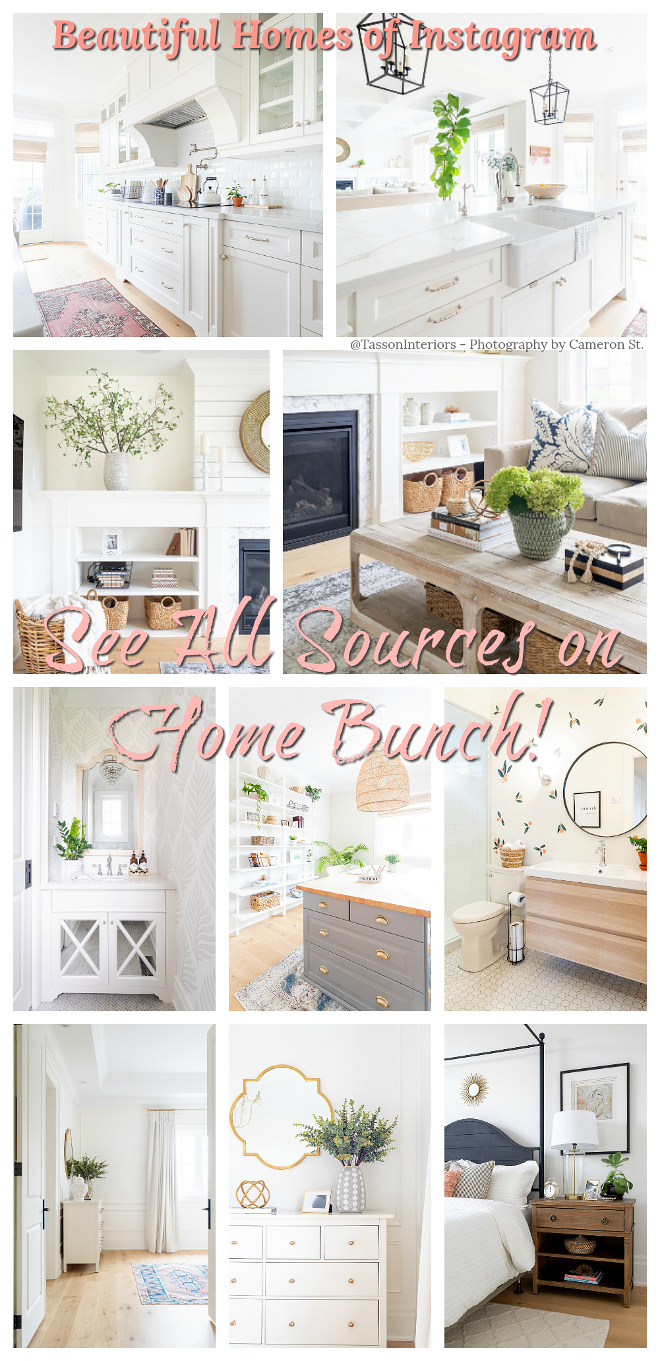 Beautiful Homes of Instagram.
Beautiful Homes of Instagram. Georgian-Style Manor with Traditional Interiors.
Georgian-Style Manor with Traditional Interiors. Transitional Home Design.
Transitional Home Design.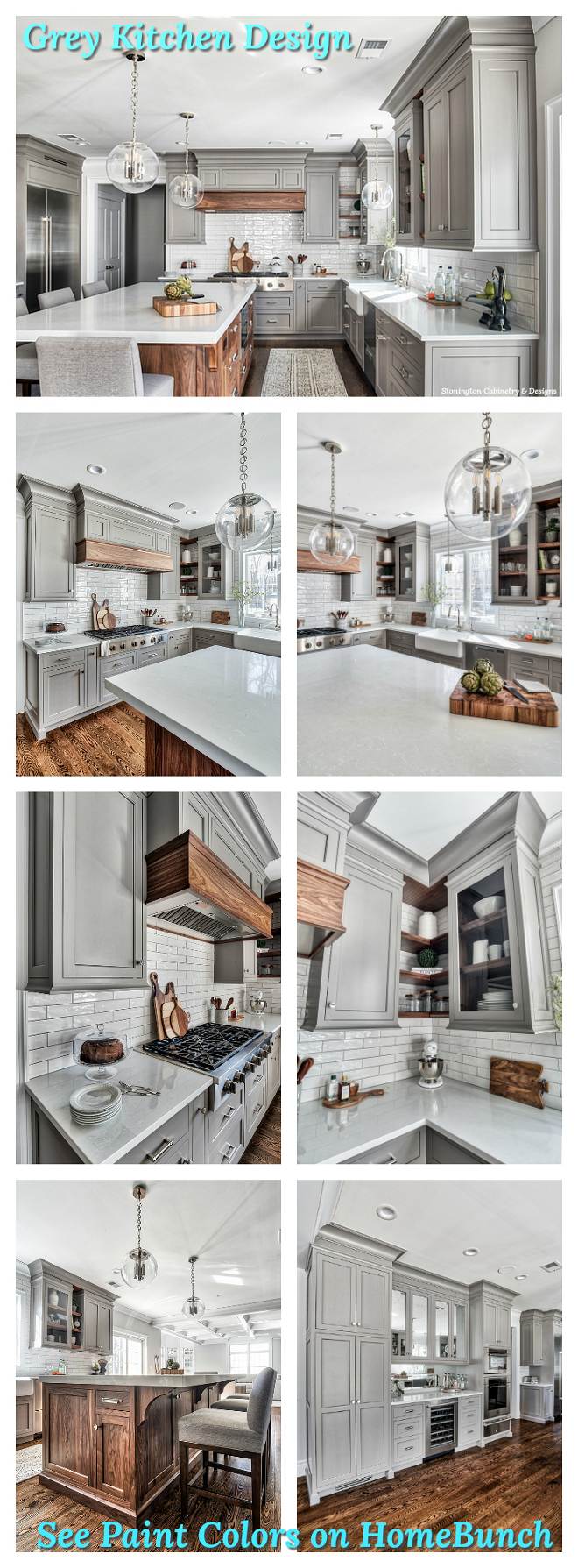 Grey Kitchen Paint Colors.
Grey Kitchen Paint Colors. Beautiful Homes of Instagram: California Beach House.
Beautiful Homes of Instagram: California Beach House.“Dear God,
If I am wrong, right me. If I am lost, guide me. If I start to give-up, keep me going.
Lead me in Light and Love”.
Have a wonderful day, my friends and we’ll talk again tomorrow.”
with Love,
Luciane from HomeBunch.com
Get Home Bunch Posts Via Email ![]()
“For your shopping convenience, this post might contain links to retailers where you can purchase the products (or similar) featured. I make a small commission if you use these links to make your purchase so thank you for your support!”
No Comments! Be The First!